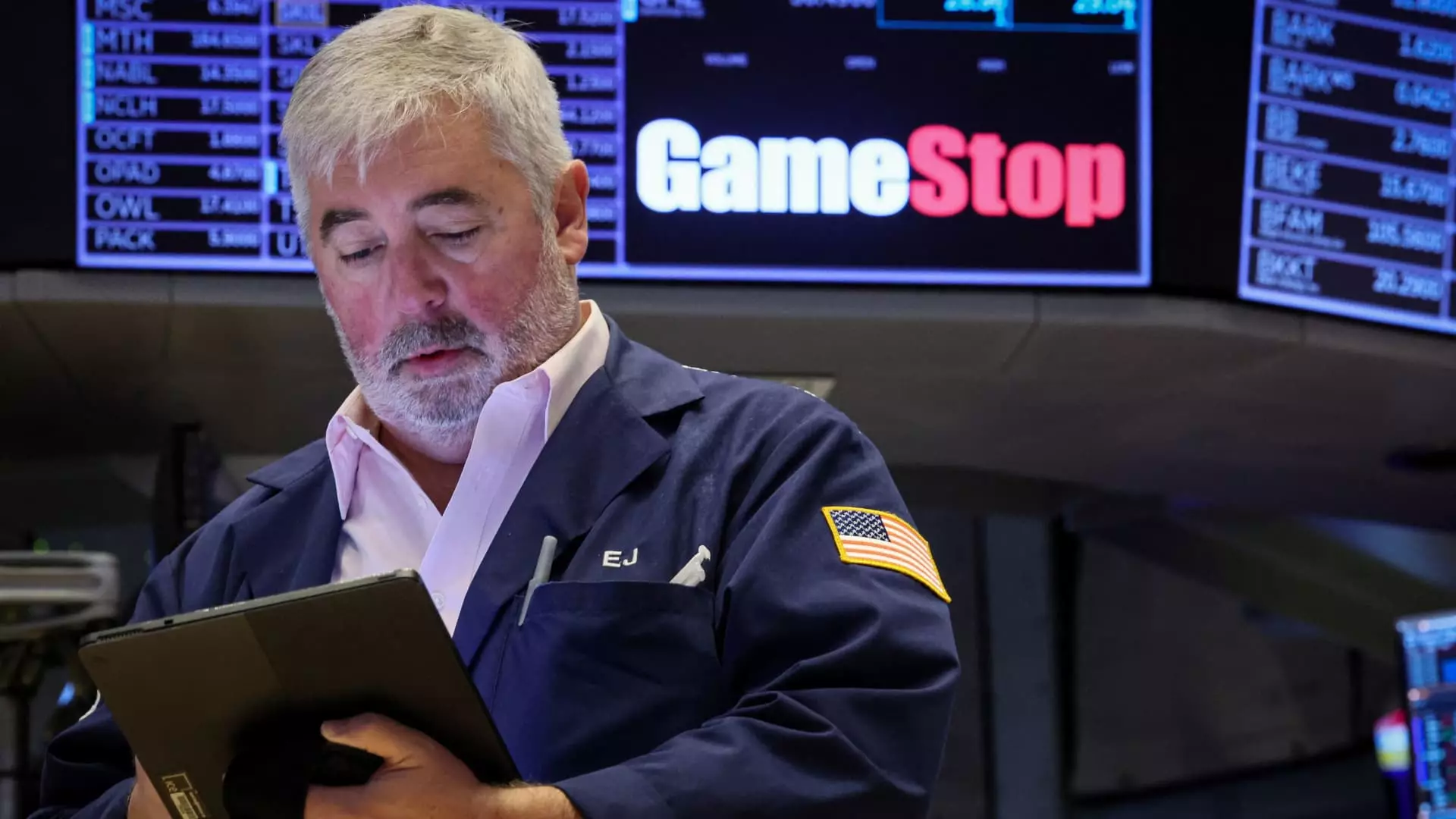In a recent twist that has shaken the investing community, GameStop’s stock price experienced a significant plunging after announcing its audacious plan to raise $1.3 billion through the sale of convertible debt, aiming to invest heavily in Bitcoin. This move, reminiscent of the tactics employed by MicroStrategy, encapsulates the precarious nature of meme stocks—more speculative excitement than sound financial strategy. The stock surged nearly 12% in one day, only to drop more than 13% the following day, revealing the volatility that characterizes both GameStop and the broader meme stock phenomenon.
Dreaming of Digital Gold
GameStop’s board has unanimously embraced a cryptocurrency strategy, planning to dip its toes into Bitcoin using the proceeds from debt or equity offerings. However, one must wonder whether this plan truly aligns with the core business mission of a video game retailer. The leap from gaming to Bitcoin is jarring; while the allure of digital currency presents opportunities for bold investors, it feels more like an act of desperation than a calculated investment. GameStop, with its current market valuation hovering around $12.7 billion, appears to be driving blindly into speculative waters buoyed only by the fumes of meme-driven enthusiasm.
Valuation Woes: Is GameStop Overpriced?
According to analysis from Wedbush analyst Michael Pachter, the risk of issuing convertible notes raises significant questions about GameStop’s future. The company will need to issue an additional 46 million shares to facilitate this debt, subsequently inflating its cash reserves to $6.1 billion. While this might seem advantageous on the surface, it also signals that the company’s current valuation is tenuous at best. Trading at more than twice the value of its cash pile raises red flags—are investors making their decisions based on sound fundamentals, or are they entrapped in a speculative thrill ride?
The stark reality is that GameStop’s foray into the volatile world of cryptocurrency may not yield the results they anticipate. With an inflated valuation and a business model more in tune with nostalgia than innovation, the company’s ability to convert cash into Bitcoin and create shareholder value is already crippled at the outset.
Comparative Analysis: MicroStrategy’s Success vs. GameStop’s Risks
When we analyze GameStop’s comparison to MicroStrategy, it is essential to consider past successes and current surroundings. MicroStrategy’s approach has been lauded, as it trades at a much lower valuation in relation to its Bitcoin holdings, contrasting sharply with GameStop’s predicament. The risks that GameStop is courting by testing the waters of cryptocurrency investment could spur backlash from shareholders who seek sustainable growth rather than gambles on digital currencies. Pachter summed it up succinctly: GameStop’s overvaluation makes it less likely that their move towards Bitcoin will elicit favorable outcomes.
As the continuing saga of GameStop unfolds, one cannot ignore the hurdles and perilous landscape they’re navigating. Their gamble may very well be a self-sabotaging endeavor, a mirage of potential wrapped in investor euphoria, devoid of a solid footing in reality. The repercussions of this bold strategy remain to be seen, but for now, it seems fraught with risk and uncertainty.

